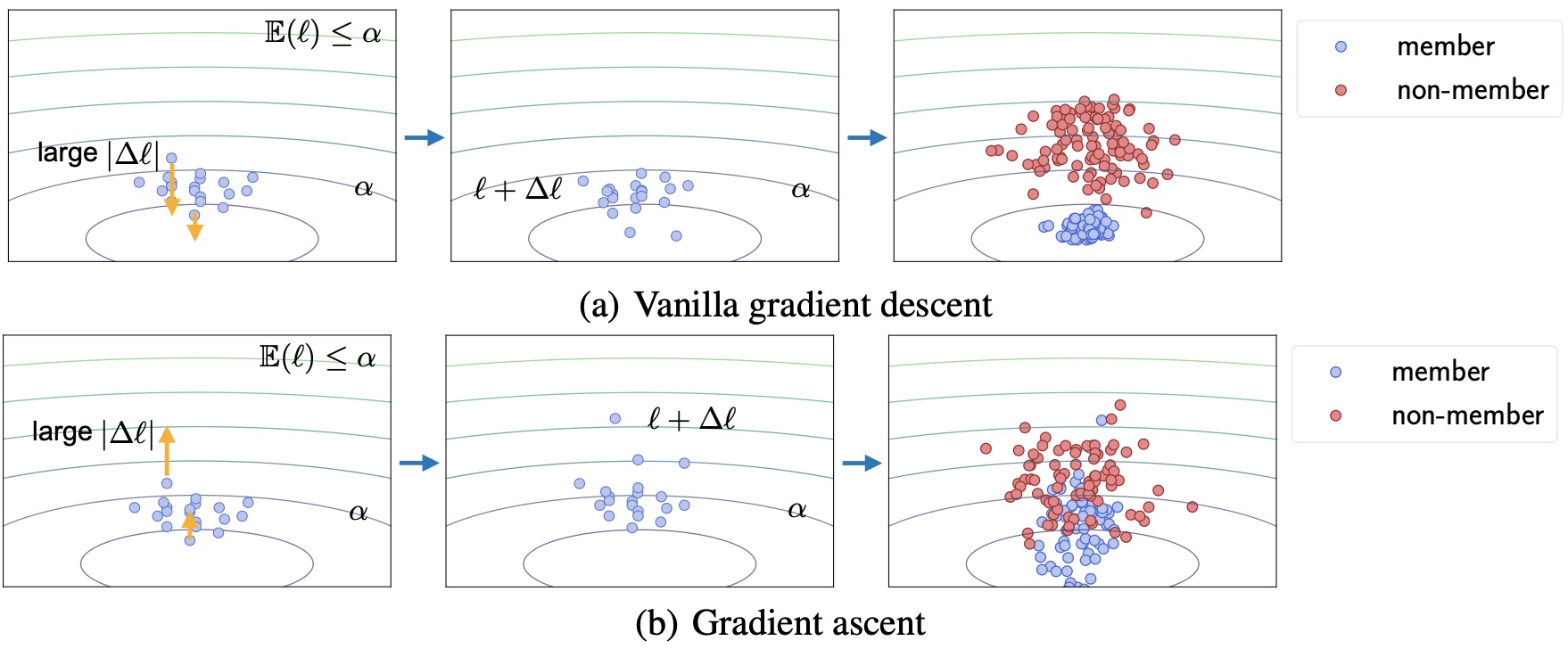 This repository contains the implementation for "RelaxLoss: Defending Membership Inference Attacks without Losing Utility" (ICLR 2022).
This repository contains the implementation for "RelaxLoss: Defending Membership Inference Attacks without Losing Utility" (ICLR 2022).
Contact: Dingfan Chen (dingfan.chen@cispa.de)
This implementation is based on PyTorch (tested for version 1.7.0). Please refer to requirements.txt for the other required packages and version.
The implementation supports the following datasets:
- CIFAR10, CIFAR100 (corresponding files are in folder
"source/cifar") - Texas, Purchase (corresponding files are in folder
"source/nonimage")
The datasets will be automatically downloaded to folder "data" once you run the program.
cd source
python main.py \
--dataset "Dataset name" \
--method "Defense method" \
--mode "Experiment mode" \
[--model "Model architecture"(used only for CIFAR datasets)] \
- Set the
"Defense methods"to be'relaxloss'to run our method. - The following defense methods are supported:
'vanilla', 'relaxloss', 'advreg', 'dpsgd', 'confidence_penalty', 'distillation', 'dropout', 'early_stopping', 'label_smoothing'. And'vanilla'corresponds to no defense baseline. - The following
"Experiment modes"are supported:'defense': run the defense method to train a target model.'attack': evaluate the target model under different MIAs (it requires to run defense first).'shadow': run the defense method to train a shadow model.'defense_attack': run the defense method to train a target model and directly evaluate the trained target model under different MIAs.
- For CIFAR datasets, default configurations support
'resnet20'and'vgg11_bn'models.
- Go into folder
source/cifar/defenseorsource/nonimage/defensedepends on the dataset. - You can run each defense with command
and specify the arguments in command-lines. Please refer to the
python 'Defense_name'.py \ -name "Experiment name (output folder name)" \ --dataset "Dataset name" \ [--model "Model architecture"(for CIFAR datasets)] \parse_arguments()function in each python file for more details.
- Go into folder
source/cifarorsource/nonimagedepends on the dataset. - Run attacks by providing the directory that contains the
'model.pt'file.python run_attacks.py -target "Target_MODELDIR" -shadow "Shadow_MODELDIR" - In the current implementation, the attack
ACC(accuracy) andAUC(area under the ROC curve) are evaluated. - The following attacks are supported. Please refer to
'source\utils\attack.pyfor more details.'NN','Confidence','Loss','Entropy','Modified-Entorpy(Black-box)'grad_wrt_x_l1', 'grad_wrt_x_l2', 'grad_wrt_w_l1', 'grad_wrt_w_l2'(White-box)
@inproceedings{chen2022relaxloss,
title={RelaxLoss: Defending Membership Inference Attacks without Losing Utility},
author={Chen, Dingfan and Yu, Ning and Fritz, Mario},
booktitle={International Conference on Learning Representations (ICLR)},
year={2022}
}Our implementation uses the source code from the following repositories:


